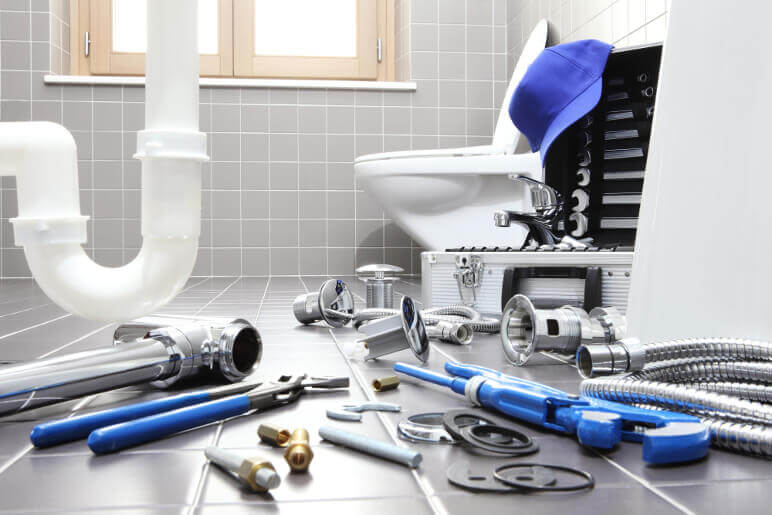
5 Plumbing Problems You Should Absolutely Not DIY
Originally posted on https://richmondplumbingandhvac.com/5-plumbing-problems-you-should-absolutely-not-diy/
Approximately 70% of home renovation projects involve some degree of DIY.
Beyond the sense of pride you get from finishing your own home projects, DIY can also save you money. But there are some DIY projects that are best left to the professionals.
In terms of DIY plumbing, there’s a big difference between changing a leaky faucet and unclogging a drain. Where one takes little know-how and experience, the other requires both.
Don’t risk making a simple problem into something costly and time-consuming. Read this guide one five plumbing issues that you should never DIY.
You Don’t Know the Code
Plumbing code involves the National Uniform Plumbing Code, which is applicable to the US as a whole. In addition to that code, you also need to know the local code. These differ between states and counties and tend to be even more restrictive.
If you don’t know the plumbing code for your locality or the general plumbing code, you shouldn’t attempt DIY plumbing. Even more than that, if you’re not a licensed plumber, you may not be able to get a permit for your repairs.
Making repairs without a permit might be all well and good as long as you’re living in the home. But if you ever decide to sell, those unpermitted repairs are sure to cost you. During a home inspection for a home sale, the inspector looks for work that doesn’t follow the building code.
If you get caught making repairs that require a permit without said permit, you may also face heavy fines from the city. You’ll also have to rip out all of the work you’ve done and do the job again, with the right permit. That costs you in both time and money.
It Requires Tools You Don’t Have
When it comes to DIY plumbing, not having the right tools for the job can end up making a job worse than it would have been had you had the right tools. While it’s expected that you might need some screws or pipe fittings from the hardware store, there are some tools that only a professional plumber would have access to.
For example, you might try and clear a clogged drain with drain cleaner or a hand-crank drain snake. If the clog can’t be dissolved by drain cleaner or you misuse the hand-crank drain snake, you’ll end up causing damage to the pipes.
Had you just called a plumber from the get-go, they could have cleared the clog with a hydro jet. In that case, all you would have had to pay for is the unclogging. But because you did the job with the wrong tools, you’ll now have to pay for the plumber to remove, fix, and replace your pipes.
You Don’t Know the Extent of the Problem
If you’re not a professional plumber, you don’t have the experience and knowledge to properly diagnose a DIY plumbing problem. That can easily lead to you fixing the wrong culprit and making the problem worse. And that could end up costing you money.
For example, you may think that a leak in your tub is due to caulking. So you remove the old, go buy new and apply fresh caulking.
But maybe the leak was actually coming from the pipes. Now you’ve spent time and money on fresh caulking, and the problem is still there. Plus that leaking water could be causing damage to your subfloor or leading to the development of mold.
Misdiagnosing a problem can also turn what you thought would be a simple DIY plumbing job into a big, time-consuming mess. You may have set aside a weekend to do a job that ends up taking you three weekends because you didn’t realize the extent of the problem and all the work involved. Something as simple as buying the wrong part or skipping a step can set you back hours.
It Requires a DIY Plumbing How-To Video
If you have to use a DIY plumbing how-to video to get the job done, you’re probably not qualified to do it. And those videos aren’t meant for people with absolutely no know-how or experience.
How-to videos typically only show you the bare minimum of what needs to be done on a plumbing job. In addition, they’re showing the best-case scenario.
They don’t go into any details on what you should do if you encounter a problem – and chances are, you’ll encounter a problem. Unexpected problems are where the experience of a professional plumber comes into play. And installing that toilet with your best friend that one time doesn’t count as experience.
Any of These Jobs
There are some plumbing jobs that you should absolutely never do, regardless of how many times you’ve done it with a friend and how confident you are in replicating it. These jobs should always be left to a professional plumber:
- replacing a washer or jumper valve in a faucet
- replacing a showerhead
- fixing burst pipes
- anything gas fitting-related
- changing garbage disposal units
- installing backflow prevention devices
- clearing a clogged drain
- sanitary drain maintenance on ground level traps
- installing water closets
For any of these projects, a plumber is likely to save you time and money. And keep in mind that jobs that involve gas line repair, sewer repair, pipe replacement, and pipe rerouting, are actually dangerous to do on your own. So by calling a plumber, you’re also avoiding potential injury.
Have a Plumbing Issue That Requires Professionals?
When you take plumbing into your own hands, you run the risk of causing more damage, misdiagnosing a problem, or potentially getting injured. DIY plumbing can also lead to higher costs than what a plumber would have cost in the first place.
When you have a plumbing issue, you should leave it to the professionals. Contact us to schedule your appointment.
